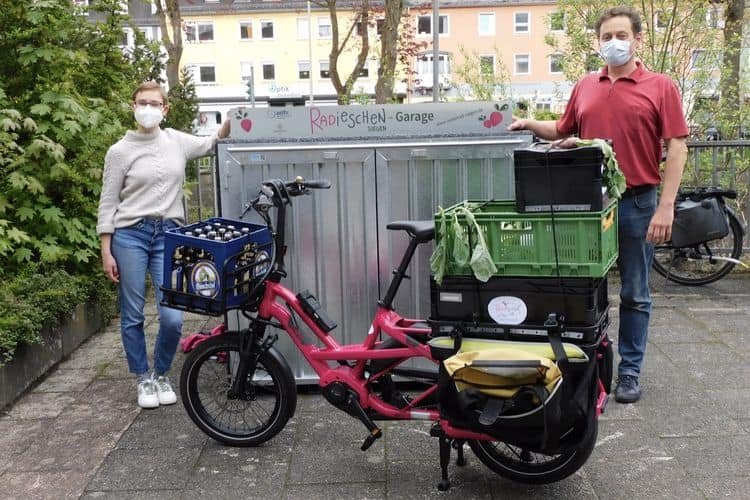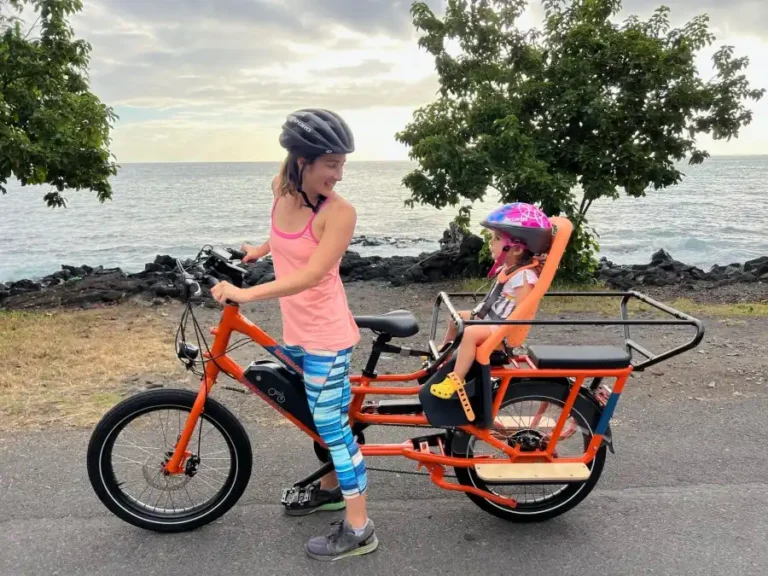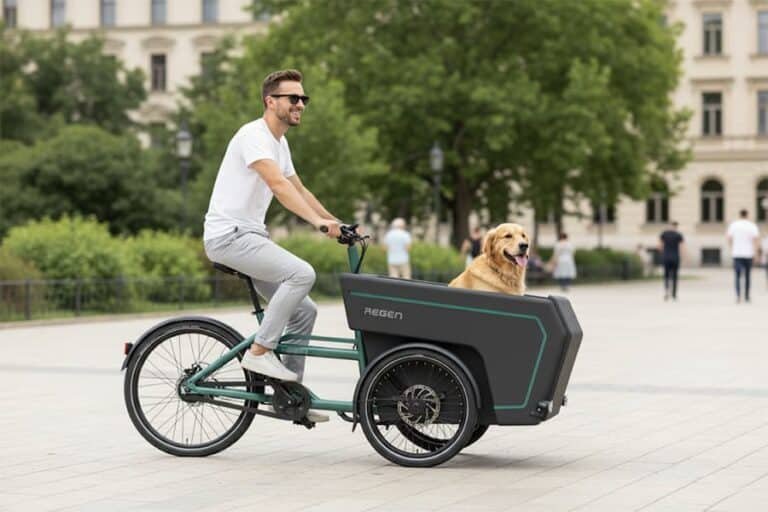5 juni 2025 — Londen, VK — In een belangrijke ontwikkeling voor de Europese e-mobiliteitssector heeft de Amerikaanse fietsengigant Trek Group de activa en activiteiten overgenomen van EAV Bikes, een Britse fabrikant van elektrische bakfietsen. De overname, die eerder deze week werd aangekondigd, markeert een keerpunt voor EAV, dat de afgelopen 12 maanden te kampen had met toenemende financiële druk.
Een reddingslijn te midden van financiële problemen
Electric Assisted Vehicles Ltd. (EAV), opgericht in Oxfordshire in 2018, heeft een reputatie opgebouwd met de ontwikkeling van innovatieve vierwielige elektrische vrachtvoertuigen gericht op bezorging op de laatste kilometer, gemeentelijk gebruik en stedelijke logistiek. Ondanks een sterk productassortiment en een zichtbare aanwezigheid in pilotprogramma's in heel Europa, had het bedrijf moeite om op te schalen vanwege vertragingen in de toeleveringsketen en kapitaaltekorten.
Volgens de financiële overzichten van EAV voor 2024, ingediend bij Companies House, leed het bedrijf een operationeel verlies van £ 3,1 miljoen. Dit verlies werd grotendeels veroorzaakt door stijgende productiekosten en het niet behalen van de implementatiedoelstellingen voor het vlaggenschipmodel EAV2Cubed.
Door de toenemende schulden en het uitblijven van een succesvolle financieringsronde in 2024, ging EAV in april 2025 onder curatele. Dit leidde tot bezorgdheid bij logistieke bedrijven en voorstanders van duurzaamheid, die het merk zagen als een pionier op het gebied van schoon stedelijk vervoer.
De strategische intrede van Trek Group in de markt voor utilitaire e-mobiliteit
Trek Group, wereldwijd bekend om zijn performance fietsen en e-bikes, heeft duidelijk gemaakt dat het de ambitie heeft om verder te groeien dan de traditionele consumentenmarkt en zich te richten op e-mobiliteit gericht op nutsbedrijven. De overname van EAV past in die strategie.
"Deze stap sluit aan bij onze langetermijnvisie dat stedelijke logistiek en micromobiliteit een belangrijke rol zullen spelen bij het vormgeven van duurzame steden", aldus Laura Reynolds, Vice President Business Development bij Trek Group. "EAV heeft al het zware werk verricht om een aantrekkelijk platform te ontwikkelen. We zijn van plan om schaal, productiestabiliteit en wereldwijde distributie te bieden."
Hoewel de exacte overnamewaarde onbekend blijft, suggereren bronnen dicht bij de deal een bedrag tussen de £ 4 en £ 5 miljoen, inclusief intellectueel eigendom, resterende voorraad en belangrijk technisch personeel. Trek zal EAV exploiteren als een volledige dochteronderneming, met behoud van de merknaam en de R&D-vestiging in Oxfordshire.
Wat is de toekomst van het EAV-merk?
Trek is van plan om de productie van de EAV2Cubed- en EAVRoRo-modellen in het eerste kwartaal van 2026 weer op te starten. In eerste instantie richt het bedrijf zich op het Verenigd Koninkrijk, Nederland en Duitsland, markten waar e-cargofietsen dieselbestelwagens snel vervangen voor leveringen in stedelijke gebieden over korte afstanden.
Volgens de Europese Fietsersfederatie (ECF) zijn er meer dan 420.000 bakfietsen werden in 2024 in Europa verkocht, een toename van 161 TP5T's ten opzichte van het voorgaande jaar. Hiervan werden bijna 701 TP5T's gekocht door bedrijven, gemeenten of wagenparkbeheerders.
De ontwerpfilosofie van EAV – gericht op lichtgewicht quads met gesloten cabines, modulaire opbergruimte en trapondersteuning – biedt een onderscheidend alternatief voor grotere, minder wendbare elektrische bestelwagens. Hun voertuigen zijn wettelijk geclassificeerd als e-bikes volgens de EU-regelgeving, waardoor ze zonder rijbewijs in lage-emissiezones en op fietspaden mogen rijden.
"De timing is perfect", aldus Erik Müller, mobiliteitsconsultant in Berlijn. "Vlootbeheerders staan onder druk om te decarboniseren en steden herinrichten de ruimte om prioriteit te geven aan niet-gemotoriseerd vervoer. Met Trek achter hen is EAV nu in een sterkere positie om aan die vraag te voldoen."
Impact op de industrie en concurrenten
De stap van Trek zet zowel traditionele bakfietsfabrikanten als opkomende startups in de markt voor lichte elektrische voertuigen (LEV's) onder druk. Bedrijven zoals Urban Arrow (Pon Holdings), VUF Bikes en ONO Motion hebben in heel Europa een aanzienlijke vlootgroei gezien, maar slechts weinigen hebben de productieschaal of het wereldwijde bereik van Trek.
Bovendien wijst de overname op een consolidatietrend in de gefragmenteerde LEV-markt, waar kleinere startups vaak moeite hebben met toegang tot kapitaal en complexe regelgeving.
"Het is een slimme redding", aldus Sophie Grant, transportanalist bij Clean Mobility Watch. "Trek krijgt toegang tot een groeiende categorie zonder helemaal opnieuw te hoeven beginnen. En voor EAV is het een tweede kans met een stabiele financier."
Personeel en activiteiten van EAV blijven in het VK
Als onderdeel van de deal bevestigde Trek dat het het kernteam van EAV's engineeringteam zal behouden en zal blijven opereren vanuit de vestiging in Kidlington, nabij Oxford. De bestaande faciliteit zal dienen als een expertisecentrum voor R&D op het gebied van vrachtvoertuigen, met extra investeringen gepland in composietmaterialen en optimalisatie van de aandrijflijn.
Er zijn ook gesprekken gaande met diverse voormalige klanten, waaronder DPD, Ocado en DHL Supply Chain, om de stopgezette voertuigtests en servicecontracten te hervatten. De bredere wereldwijde toeleveringsketen en aftersalesondersteuning van Trek kunnen een geruststelling bieden aan deze exploitanten, van wie velen hun zorgen hadden geuit over de betrouwbaarheid van EAV onder financiële druk.
Conclusie
In een tijdperk waarin steden schonere, kleinere en veelzijdigere bezorgoplossingen eisen, lijkt de combinatie van Treks schaalgrootte en EAV's innovatie een goed moment. Hoewel veel afhangt van de uitvoering in de komende 12 maanden, redt de overname niet alleen een veelbelovend Brits bedrijf, maar zou het ook de toon kunnen zetten voor de volgende fase van stedelijke micromobiliteit in Europa.
Sommige afbeeldingen op deze website/dit artikel zijn afkomstig van internet en zijn uitsluitend bedoeld ter illustratie en educatie om het begrip van de inhoud te vergroten. We respecteren de intellectuele eigendomsrechten van de oorspronkelijke makers en streven ernaar om waar nodig bronnen te vermelden.
Disclaimer auteursrecht afbeeldingen
Bent u de rechtmatige eigenaar van een afbeelding die hier wordt weergegeven en bent u van mening dat het gebruik ervan een inbreuk op het auteursrecht vormt, neem dan contact met ons op via info@regencargobikes.com. Na verificatie zullen we de afbeelding onmiddellijk verwijderen of een passende bronvermelding toevoegen.
Dank u voor uw begrip.
© Regen Technology Co., Ltd.






